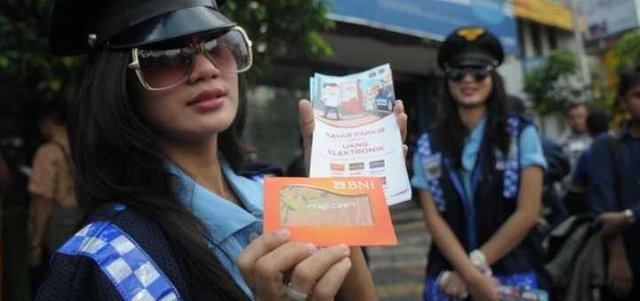E-money refill fee rules are judged to be in conflict with non-cash programs
The Institute for Development of Economics and Finance (Indef) assesses that top-up charges for electronic money (e-money) are considered to clash with government programs that want to encourage non-cash movements. The move of Bank Indonesia (BI), which will regulate the cost of top-up e-money is considered less precise to do at this time.

Indef researcher Bhima Yudhistira Adhinegara said that BI's policy which coincided with the implementation of toll road electronication is very contradictory. On the other hand, this is also contrary to the non-cash movement initiated by BI and the government.
"On the one hand, we are asking the people to use e-money and encourage the non-cash movement but it is levied," he said when contacted by reporters in Jakarta on Wednesday (20/9) ).
When charged e-money refills, he said, it is feared people will return to use cash in transactions. Of course this is even a setback. He also regretted the bank as a provider of e-money cards, where in the e-money business in fact the bank has got a profit without having to impose the cost of refills e-money.
"For example, from the beginning, people have paid e-money card, buy Rp 50.000, Rp 30.000 balance, Rp 20,000 card price.Cost of card sales is actually recorded as fee-based income bank.It should be profit from the sale of e-money no longer need to collect top-up fees, because considered to incriminate consumers, "he explained.
For example like in Hong K0ong that uses octopus card. For the cost of EDC machine maintenance and infrastructure investment is borne by card issuing companies and public transport service operators. Even with the sharing cost the consumer can get a discount. This incentive makes 95 percent of Hong Kong's population use Octopus cards.
"In the context of Indonesia, this sharing cost can be done between card issuing banks, toll road organizers and merchant providers top up, so if the tariff policy is still done, people will again use cash money, except in tolls because they have to," he said.
Previously, the State Owned Banks (Himbara) asserted that based on the direction of SOE Minister Rini Soemarno, state-owned banks such as Bank Mandiri, Bank BRI, BNI and Bank BTN decided not to charge e-money refills. Chairman Himbara, Maryono said, this step is taken to provide socialization to the community that they love the cashless system in Indonesia.
Because if the initial time is directly charged tariff, then the interest and public sympathy for cashless payment system in the country becomes not maximal. "It's on the basis of our initial framework of creating a cashless payment system, and for socializing to the public as well so they love the cashless payment system," he said.
Meanwhile, Chairman of the Board of Commissioners of Financial Service Authority (OJK) Wimboh Santoso also added that the cost of a financial product should be assigned to the industry in determining it. "When it comes to fees and so on, it is the decision of how the industry to deliver that service," he said.
Nevertheless, continued Wimboh, must be ensured that the community is not harmed by the costing. Himself mentioned, that the public interest remains a top priority. "If the community is harmed, for example, the fee is too big and does not make sense, the authority concerns to protect the community," said Wimboh.